Kon Tum No longer receiving support, the school had to call on benefactors and students to contribute rice, firewood, and food to cook meals for the boarding school.
One day in mid-May, after finishing the morning class, Y Sam, a 9th grade student at Dak Tang Ethnic Boarding Secondary School, Kon Plong District, hurried back to the boarding house about 500 meters away to help everyone arrange tables and chairs in the middle of the yard.
Another group of students went to the kitchen to bring food, arranging bowls and chopsticks on a round stainless steel table. The lunch menu that day included fish, braised pork with cabbage, and pumpkin soup.
This is a boarding meal for 69 students of the school. Students contribute rice and benefactors support 17,000 VND per student per day.
A few hundred meters away, Dak Tang Primary Boarding School also cooked lunch for 68 students. Each student received 21,000 VND. Occasionally, their families contributed rice and food.
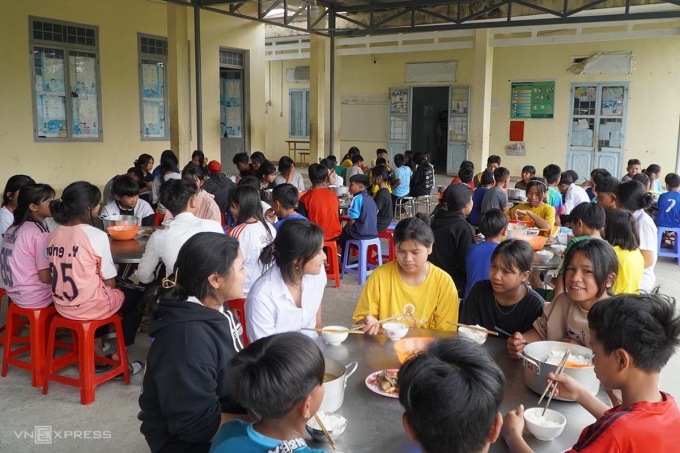
Lunch at Dak Tang Secondary School for Ethnic Minorities, May 2023. Photo: Tran Hoa
In 2021, Dak Tang commune was still in a particularly difficult area, students were supported with food and accommodation. According to Decree 116 of the Government , each month they received nearly 600,000 VND for food and 15 kg of rice. By the beginning of 2022, the commune was upgraded to a new rural area, 69 students and teachers here no longer received support.
According to the Kon Plong District Department of Education and Training, in the 2021-2022 school year, more than 1,000 students in the locality had their boarding school support cut off after villages and communes changed regions. Teachers' salaries were also reduced by one to three million VND per month.
At Dak Tang Secondary School for Ethnic Minorities, many students did not attend class and stayed home with their parents to work in the fields after their support was cut. The school had to call on volunteer groups and parents to support them to maintain their boarding meals.
In the first week, the school mobilized 1800 kg of rice and 40 kg of vegetables from parents, along with 17,000 VND per student from the "Nuoi em" project of the volunteer group Niem Tin. Teachers persuaded students who intended to drop out of school to return to class.
In addition, teachers in the school increased production, grew more vegetables, raised pigs and ducks. Up to now, the "locally raised" boarding meals have been served for more than a year.
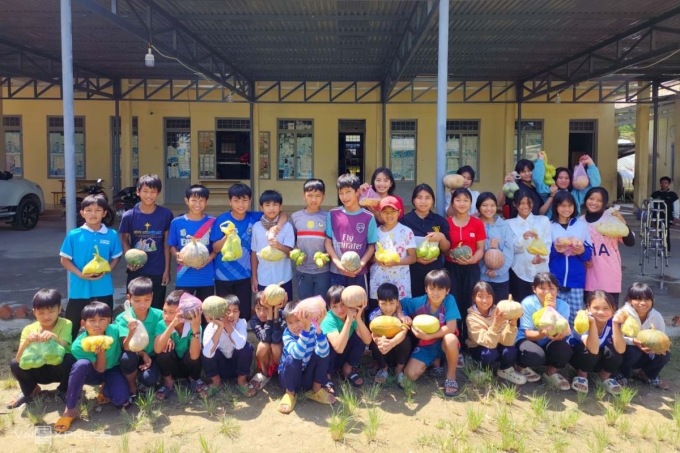
Students bring rice, food and firewood to school for the boarding meal. Photo: Tran Hoa
Sam and her 7th grade brother lost their father. Dak Po Ro - the village where the two sisters live is more than 22 km from the school, so they have to stay in the school's boarding area and only go home on weekends. Because their family is poor, each week the two sisters bring 2-4 kg of rice to school, sometimes adding a pumpkin, a bunch of wild vegetables or a bundle of firewood.
Mr. Phan Van Nam, Principal of Dak Tang Ethnic Boarding Secondary School, said that the school has 117 students, of which 115 are Xo Dang. The commune has complex terrain, divided by many hills and mountains, and a sparse population, so the journey to school for many students is difficult and isolated. Therefore, the students' contributions are voluntary.
"Your family should contribute whatever they have," said Mr. Nam.
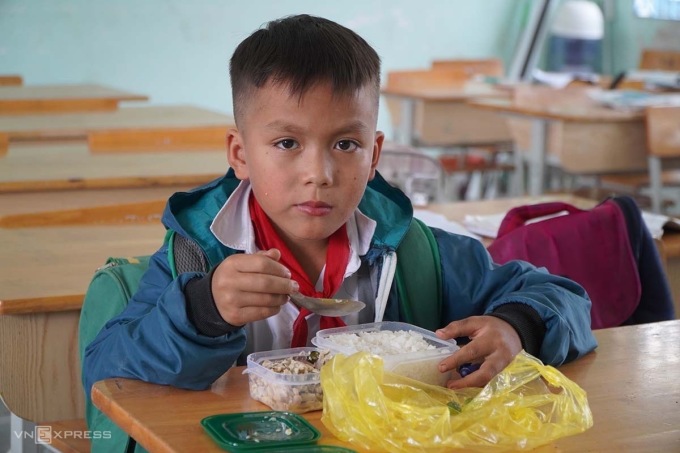
Students bring lunch to class to eat. Photo: Tran Hoa
According to Mr. Nam, boarding meals are the most effective way to retain students in disadvantaged areas. They are well fed, study in good educational conditions, and parents feel more secure when their children go to school. However, Mr. Nam worries about an uncertain future if one day, benefactors no longer support them.
"The school hopes everyone will join hands to support so that teachers can teach with peace of mind and students can have delicious meals for a long time," said Mr. Nam.
Tran Hoa
Source link











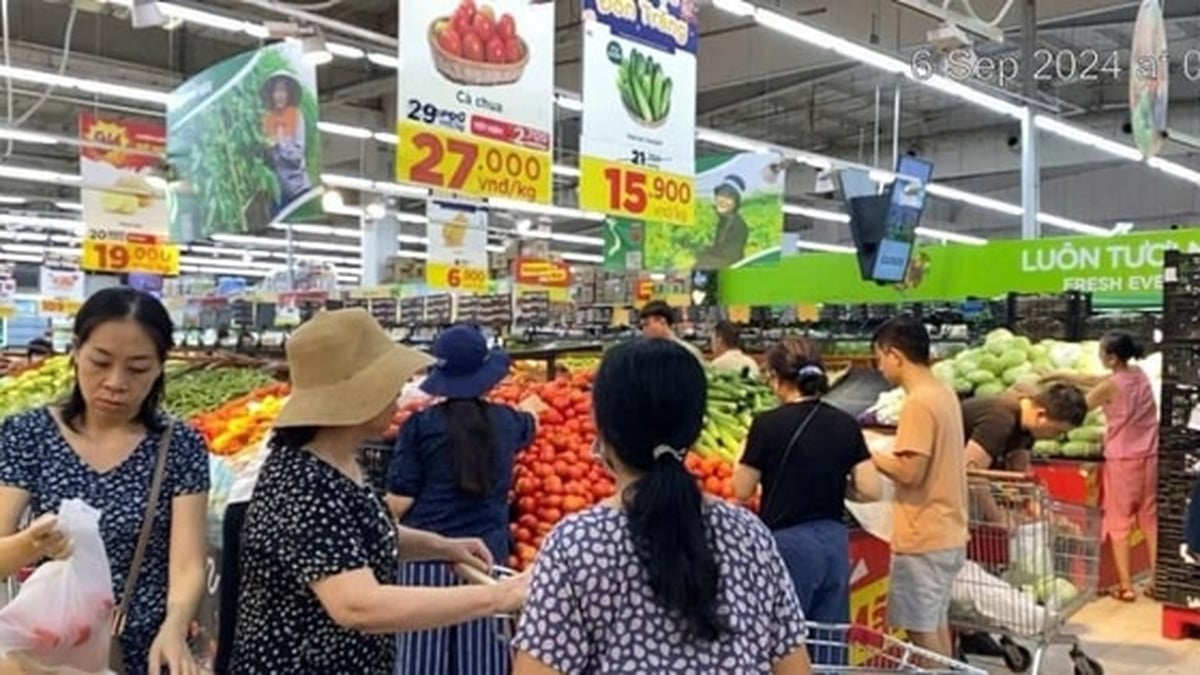



















![[Photo] National Assembly Chairman attends the seminar "Building and operating an international financial center and recommendations for Vietnam"](https://vphoto.vietnam.vn/thumb/1200x675/vietnam/resource/IMAGE/2025/7/28/76393436936e457db31ec84433289f72)

































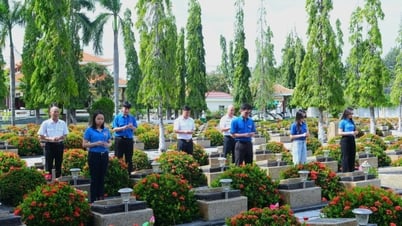




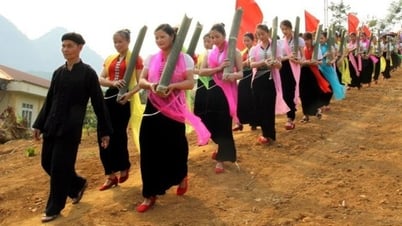

























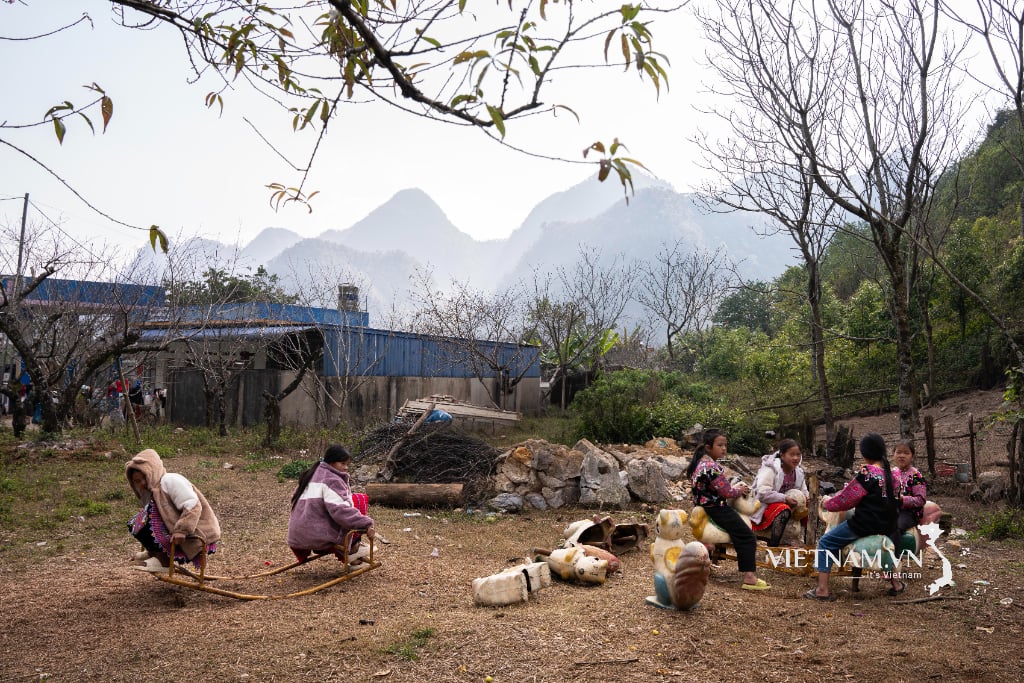

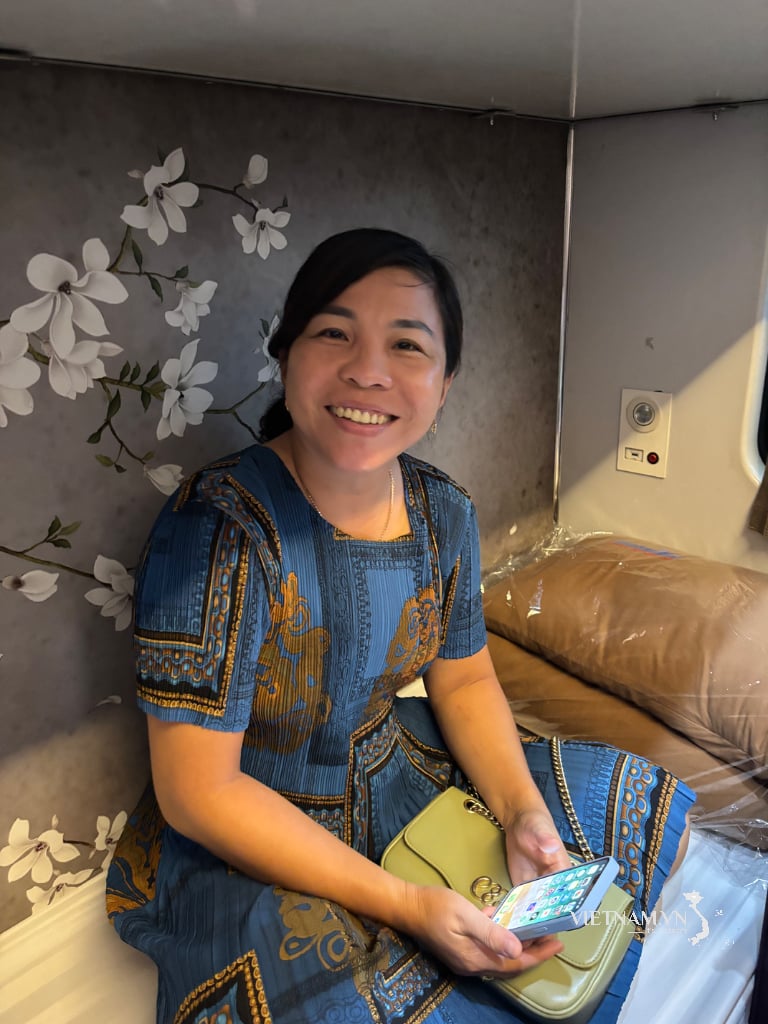

Comment (0)